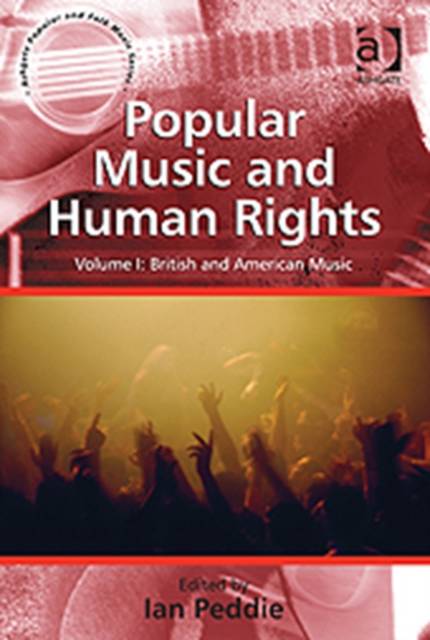
Bedankt voor het vertrouwen het afgelopen jaar! Om jou te bedanken bieden we GRATIS verzending (in België) aan op alles gedurende de hele maand januari.
- Afhalen na 1 uur in een winkel met voorraad
- In januari gratis thuislevering in België
- Ruim aanbod met 7 miljoen producten
Bedankt voor het vertrouwen het afgelopen jaar! Om jou te bedanken bieden we GRATIS verzending (in België) aan op alles gedurende de hele maand januari.
- Afhalen na 1 uur in een winkel met voorraad
- In januari gratis thuislevering in België
- Ruim aanbod met 7 miljoen producten
Zoeken
Popular Music and Human Rights
Volume I: World Music
€ 65,95
+ 131 punten
Omschrijving
Popular music has long understood that human rights, if attainable at all, involve a struggle without end. The right to imagine an individual will, the right to some form of self-determination and the right to self-legislation have long been at the forefront of popular music's approach to human rights. At a time of such uncertainty and confusion, with human rights currently being violated all over the world, a new and sustained examination of cultural responses to such issues is warranted. In this respect music, which is always produced in a social context, is an extremely useful medium; in its immediacy music has a potency of expression whose reach is long and wide.
Specificaties
Betrokkenen
- Uitgeverij:
Inhoud
- Aantal bladzijden:
- 222
- Taal:
- Engels
- Reeks:
Eigenschappen
- Productcode (EAN):
- 9781409464044
- Verschijningsdatum:
- 21/11/2012
- Uitvoering:
- Paperback
- Formaat:
- Trade paperback (VS)
- Afmetingen:
- 156 mm x 234 mm
- Gewicht:
- 317 g

Alleen bij Standaard Boekhandel
+ 131 punten op je klantenkaart van Standaard Boekhandel
Beoordelingen
We publiceren alleen reviews die voldoen aan de voorwaarden voor reviews. Bekijk onze voorwaarden voor reviews.








